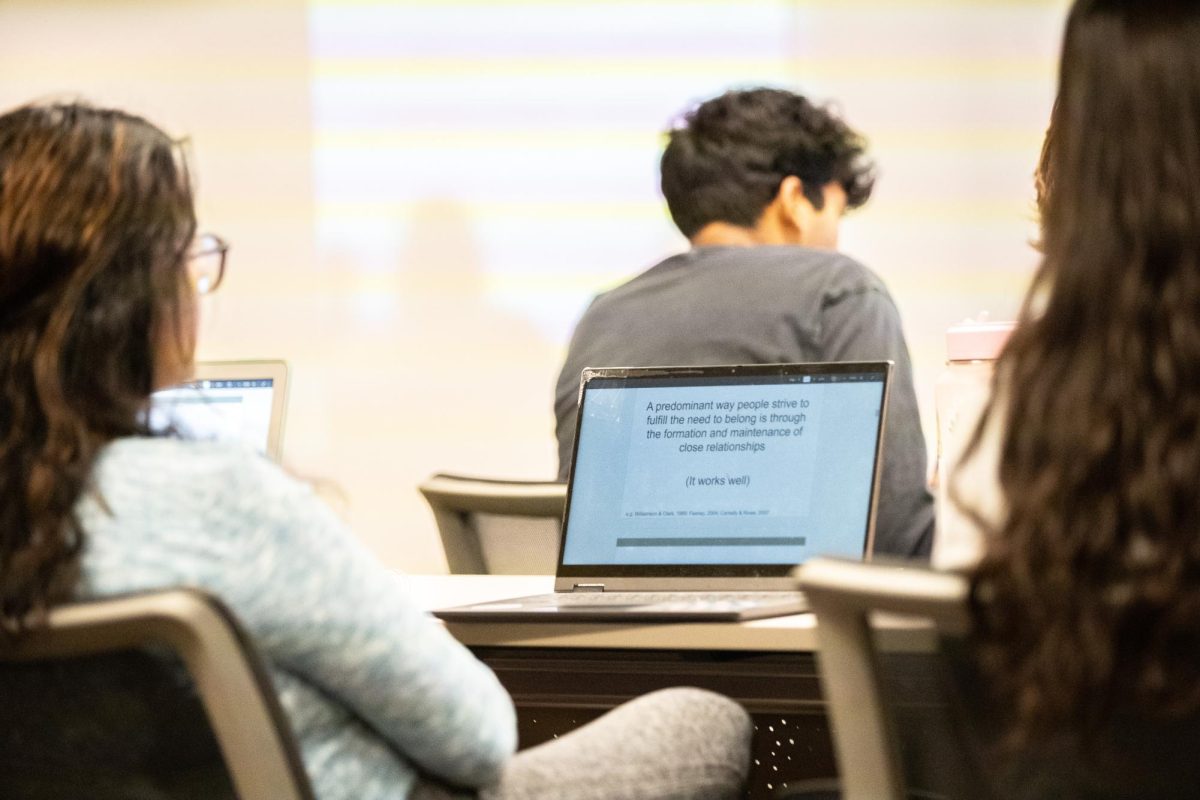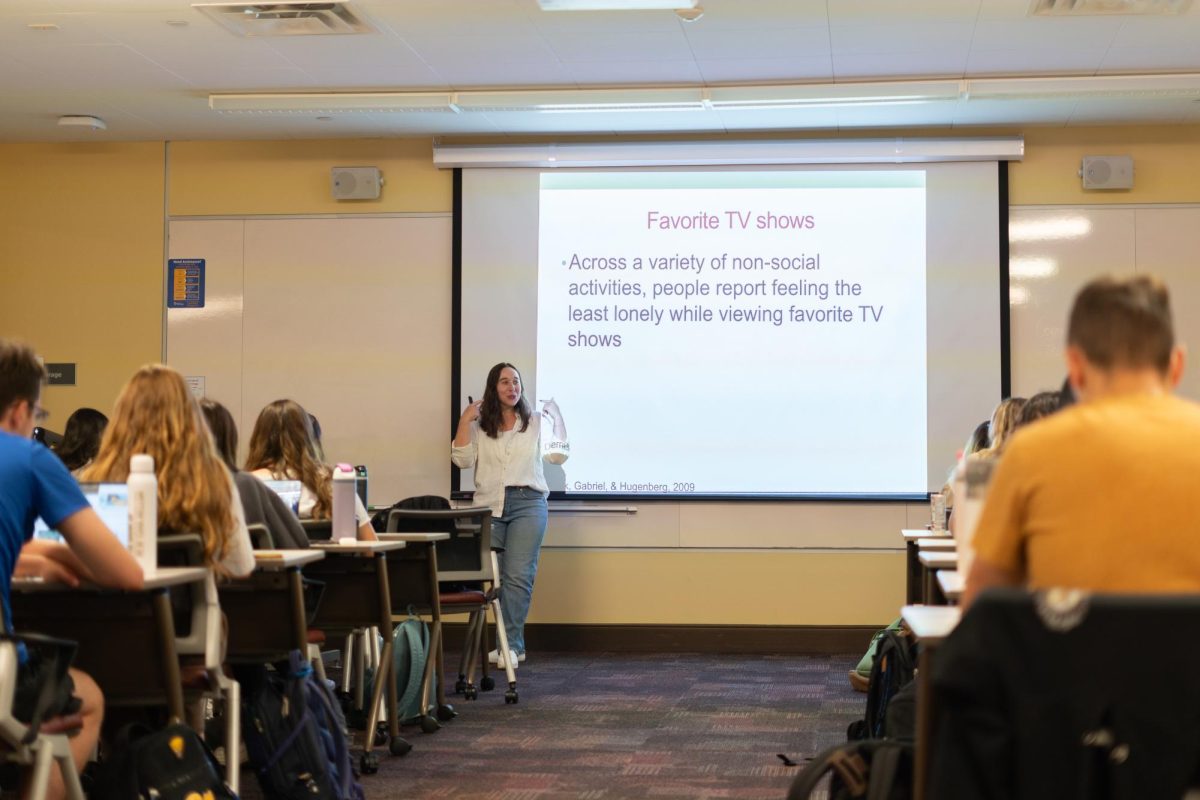When Jennifer Hirsch had the opportunity to create a social psychology class, she said that it was “a dream come true.”
“Especially as a relationships researcher, I’m interested in social interactions and how they unfold over time,” Hirsch, a teaching assistant professor, said. “I find the dynamic of reality TV interesting because players have to navigate social relationships in a game where there is only one winner, but you have to both eliminate and earn the respect of other players.”
Social Psychology of Reality TV is an upper-level psychology course created and taught by Hirsch. She said that the course is designed for students to learn social psychology topics and apply them to reality TV.
“We all watch the same season of ‘Survivor,’ and then students watch one additional reality TV show to compare,” Hirsch said. “This semester, students are choosing between watching ‘Big Brother,’ ‘Love Island’ or ‘The Traitors.’”
Hirsch studied psychology and decision sciences at Carnegie Mellon University and completed her doctorate at Yale. During her time at CMU, she took a class that inspired the design of this course.
“I took science fiction and philosophy in the fall of my freshman year,” Hirsch said. “Every week, we read a short science fiction story or watched a science fiction movie and then we read pieces of philosophy that dealt with the same themes that came up in that piece of media. We then analyzed the science fiction media through the philosophical lens.”
At the end of the semester, students in Hirsch’s class apply social psychology topics to a reality TV game simulation they play in class that she calls “Panthers.” They have the option to participate as a player in the game simulation or as producers, where they help Hirsch plan, execute and judge the players.
“It’s been really fun to watch students jump into the action and realize that it’s a little bit harder than they thought it was from watching it on the couch,” Hirsch said.
Rebecca Santangelo, a senior psychology major, took Hirsch’s class in the fall of 2023. She won the game at the end of the semester, which she said “surprised” her.
“We were split into teams called tribes and over the course of the last few weeks we were eliminated,” Santangelo said. “We kept journal entries to talk about the strategies and concepts we were using to make our decisions.”
Logan Wissinger graduated in the spring of 2024 with degrees in history and psychology and took the class in his last semester. He said the game did the “best it could at immersing students into a reality TV show in a classroom setting.”
“We were doing group challenges in our tribes,” Wissinger said. “There were advantages, like going to office hours, and there were challenges structured like reality TV show games. Then there were producers, made up of the other half of the class, who were watching and discussing what we were doing.”
Wissinger said that a common theme throughout the semester was the formation of social relationships.
“We very specifically talked about things such as relatability and social connection out of desperation and necessity,” Wissinger said. “The creation of social connections between people, especially those at the bottom, is really interesting.”
Hirsch said she wants students to not only “identify and describe social psychological concepts,” but also “use social psychology as a framework.”
“This course helps students develop their media literacy,” Hirsch said. “We spend the semester distinguishing between what is real and what is scripted in reality TV. These people are in unusual situations, and they may be acting in ways that are different than how they typically would.”
Wissinger was already a big fan of reality TV prior to this class. However, he said that this class gave him “a new appreciation” for the genre.
“I’d been watching reality TV shows for years before I took this class, and I’d be like ‘Oh, that’s a really good social move,’” Wissinger said. “This class explains the actual psychology behind those moves. We learn about why players make the choices that they do and how they form and lose social connections.”
Santangelo, who is also a longtime reality TV fan, said that this class made her “see reality TV in a different way.”
“While a lot of reality TV is scripted, it is kind of like a microcosm of real life in the way that we interact with people,” Santangelo said. “You can see how people manipulate and build relationships with each other, and the psychology behind these moves. It’s all very calculated.”
Santangelo said that while playing the reality TV show simulation at the end of the semester, she felt like she was in an actual show.
“My whole day would be structured around going to play this game later,” Santangelo said. “It was a really fun class.”
Hirsch said that she really wants students “to have fun” in this class.
“This is a very fun class, and I have so much fun teaching it,” Hirsch said. “My hope is that it’s the kind of class that students have a lot of fun taking. I want them to think about social psychology and reality TV in a different way.”



